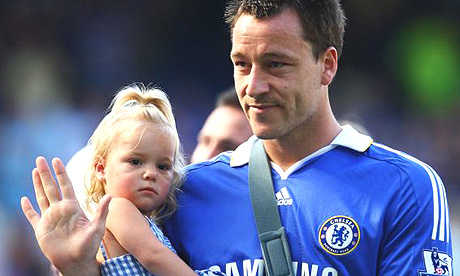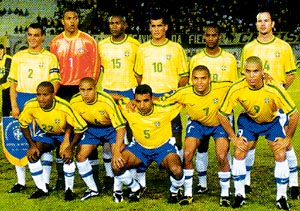
After their floundering start, South Korea has become a team to fear at the Under-20 Word Cup.
Coach Hong Myung-bo's players flexed their goalscoring muscles again Monday, hammering Paraguay 3-0 for a place in the last eight.
The win followed another 3-0 win, over the United States, when Korea keptthe Americans pinned back with long-range shots, fluid passing, and waveafter wave of attacks.
Both the U.S. and Paraguay were overrun by the speed of players like Kim Min-woo who scored twice against a Paraguayan team that could not cope with his team's swift counterattacks.
Striker Kim Bo-Kyung, who also scored Monday, is another constant threat to opposing teams.
Korea's drive and commitment was equaled by 300 traveling fans who have turned up at every game to energetically cheer them on.
Keen to attack
Coach Hong, who captained South Korea when it reached the semifinals of the 2002 World Cup when it co-hosted the event with Japan, says an open game suits his players' attacking style.
"Our aim is to play more combination football and create as many passes as possible,'' said the soft spoken 40-year-old coach, who ended his playing career at the Los Angeles Galaxy.
South Korea has made it to 11 of the 17 tournaments at this level and finished fourth in 1983. But they have been knocked out at the group stage every time they played for the past 16 years.
"Asian countries have not done so well at this level. So it's very important for us to be representing the continent here,'' Hong said.
"We still have room to improve ... No one knows how far we'll go. I'm planning to play three more matches. But to do that, you always have to concentrate on your next opponent.''
Big turnaround
South Korea looked toothless in attack in its opening match and lost to Cameroon 2-0.
A much-improved side then went on to hold Germany 1-1, and then followed the last two impressive victories.
"We're getting better with every game,'' Hong said.
His opponents agree.
"They are a quality team and play very well down the flank. They have good positions on the field. They're very strong,'' Paraguay coach Adrian Coria said after his team's defeat.
U.S. coach Thomas Rongen came to a similar conclusion after the Americans lost their final game here.
"They deserved to win,'' he said. "They played us off the park, both tactically and technically. They were also much better organised than we were.
Coach Hong Myung-bo's players flexed their goalscoring muscles again Monday, hammering Paraguay 3-0 for a place in the last eight.
The win followed another 3-0 win, over the United States, when Korea keptthe Americans pinned back with long-range shots, fluid passing, and waveafter wave of attacks.
Both the U.S. and Paraguay were overrun by the speed of players like Kim Min-woo who scored twice against a Paraguayan team that could not cope with his team's swift counterattacks.
Striker Kim Bo-Kyung, who also scored Monday, is another constant threat to opposing teams.
Korea's drive and commitment was equaled by 300 traveling fans who have turned up at every game to energetically cheer them on.
Keen to attack
Coach Hong, who captained South Korea when it reached the semifinals of the 2002 World Cup when it co-hosted the event with Japan, says an open game suits his players' attacking style.
"Our aim is to play more combination football and create as many passes as possible,'' said the soft spoken 40-year-old coach, who ended his playing career at the Los Angeles Galaxy.
South Korea has made it to 11 of the 17 tournaments at this level and finished fourth in 1983. But they have been knocked out at the group stage every time they played for the past 16 years.
"Asian countries have not done so well at this level. So it's very important for us to be representing the continent here,'' Hong said.
"We still have room to improve ... No one knows how far we'll go. I'm planning to play three more matches. But to do that, you always have to concentrate on your next opponent.''
Big turnaround
South Korea looked toothless in attack in its opening match and lost to Cameroon 2-0.
A much-improved side then went on to hold Germany 1-1, and then followed the last two impressive victories.
"We're getting better with every game,'' Hong said.
His opponents agree.
"They are a quality team and play very well down the flank. They have good positions on the field. They're very strong,'' Paraguay coach Adrian Coria said after his team's defeat.
U.S. coach Thomas Rongen came to a similar conclusion after the Americans lost their final game here.
"They deserved to win,'' he said. "They played us off the park, both tactically and technically. They were also much better organised than we were.


















.jpg)
.jpg)
.jpg)






.jpg)
.jpg)
.jpg)

.jpg)



















